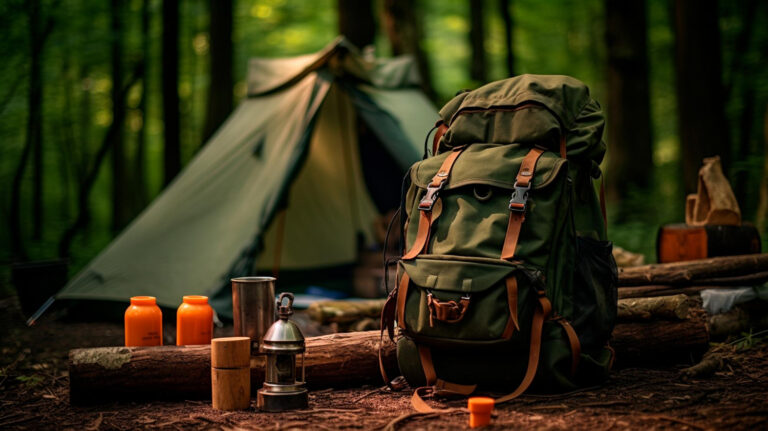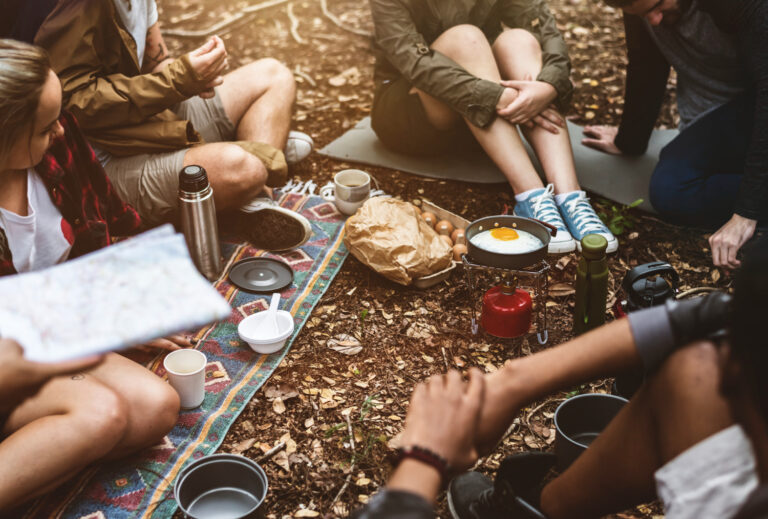When venturing into the great outdoors, whether it’s for a weekend camping trip or a more adventurous expedition, being prepared for survival situations is crucial. Here are the essential items you should always have on hand:
- Water and Water Purification: Water is essential for survival, so always carry a sufficient supply or a reliable method for purifying water from natural sources like rivers or streams. Portable water filters, purification tablets, or a lightweight water purifier can ensure access to safe drinking water.
- Shelter: A lightweight, portable shelter such as a tent, tarp, or emergency bivvy can provide protection from the elements and help regulate body temperature. Choose a shelter suitable for the environment and weather conditions you may encounter.
- Fire-starting Tools: Fire is essential for warmth, cooking, and signaling for help. Pack waterproof matches, a lighter, or a fire starter kit containing flint and steel to reliably ignite a fire in various conditions. Include tinder such as cotton balls soaked in petroleum jelly for easy ignition.
- First Aid Kit: A well-stocked first aid kit is essential for treating injuries and medical emergencies in the wilderness. Include items like bandages, antiseptic wipes, adhesive tape, pain relievers, blister treatment, and any personal medications or prescriptions.
- Navigation Tools: Carry a map, compass, or GPS device to navigate unfamiliar terrain and stay on course. Learn basic map and compass navigation skills to orient yourself and find your way in case of getting lost.
- Multi-tool or Knife: A versatile multi-tool or a sturdy survival knife is indispensable for various tasks such as cutting cordage, preparing food, building shelters, and performing minor repairs. Choose a high-quality tool with essential features like blades, pliers, screwdrivers, and a can opener.
- Food and Emergency Rations: Pack lightweight, high-energy food items like energy bars, trail mix, dehydrated meals, and emergency rations to sustain energy levels during emergencies or unexpected delays. Consider dietary restrictions and pack foods that are easy to prepare and store.
- Signaling and Communication Devices: Carry signaling devices like a whistle, signal mirror, or flare for attracting attention in case of emergencies. Additionally, bring a fully charged cell phone, satellite phone, or personal locator beacon (PLB) for communication and summoning help if needed.
- Extra Clothing and Insulation: Dress in layers and pack extra clothing to stay warm and dry in changing weather conditions. Include waterproof and insulated layers, a hat, gloves, and socks to protect against hypothermia and maintain comfort during cold or wet conditions.
- Personal Protection and Safety Gear: Equip yourself with essential personal protection gear such as a headlamp or flashlight, sun protection (hat, sunglasses, sunscreen), insect repellent, and a whistle for safety and comfort in the wilderness.
By carrying these essential items and being prepared for unexpected situations, you can enhance your safety and resilience during outdoor adventures and ensure a more enjoyable and rewarding experience in nature. Remember to customize your survival kit based on the specific requirements of your trip, location, and personal preferences.


